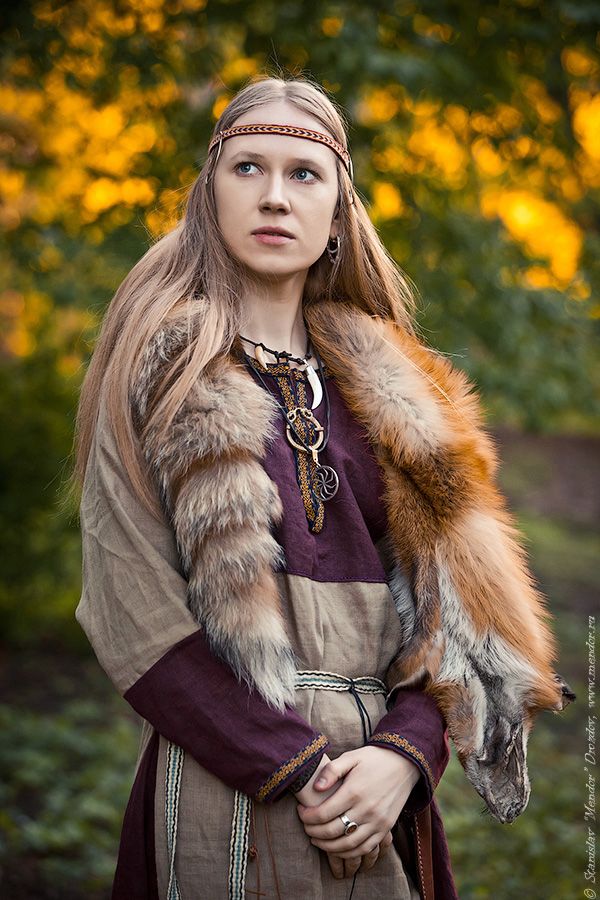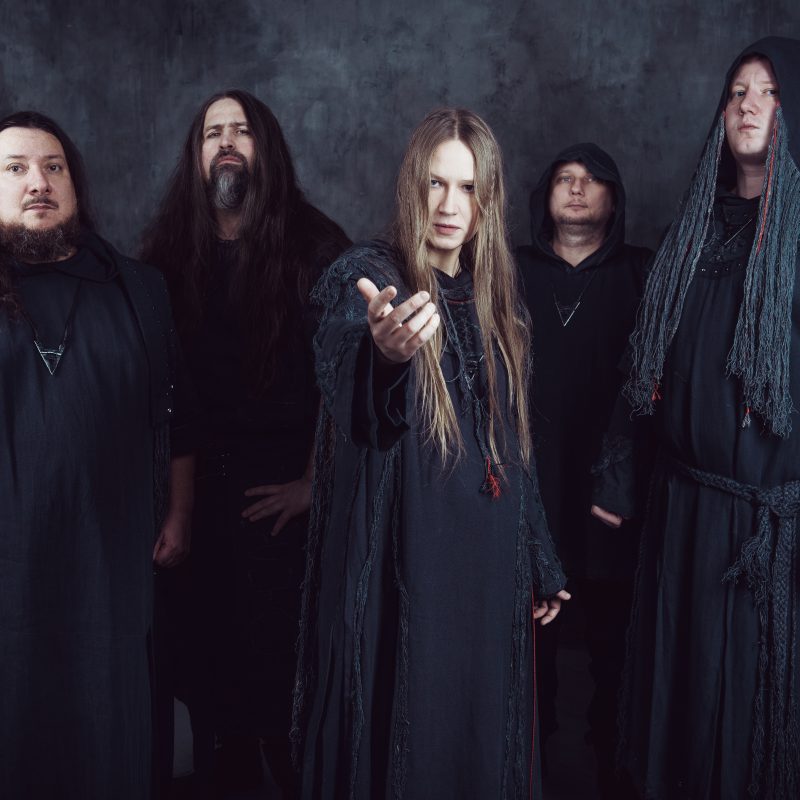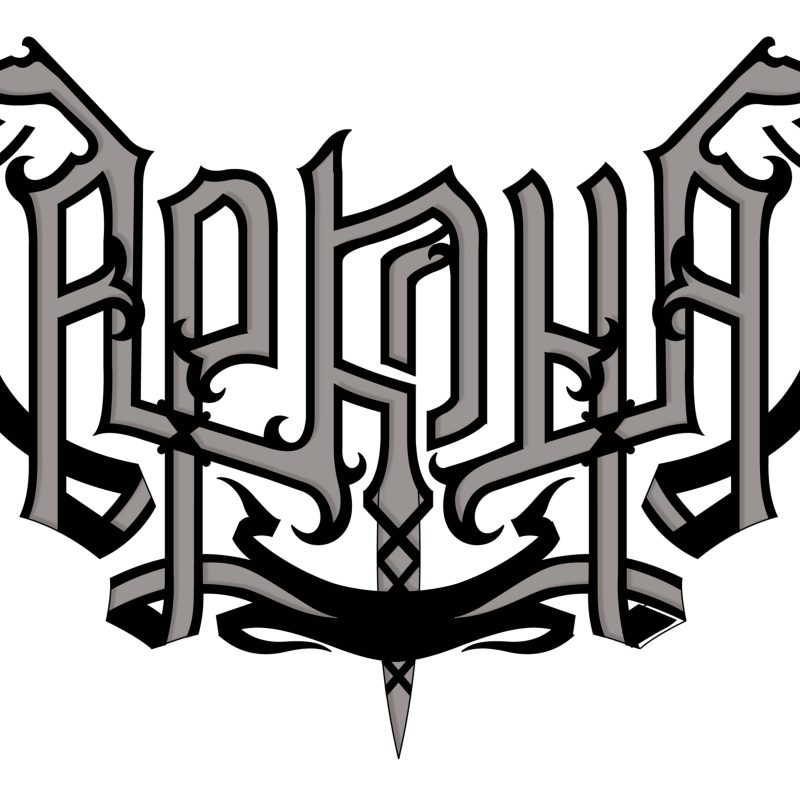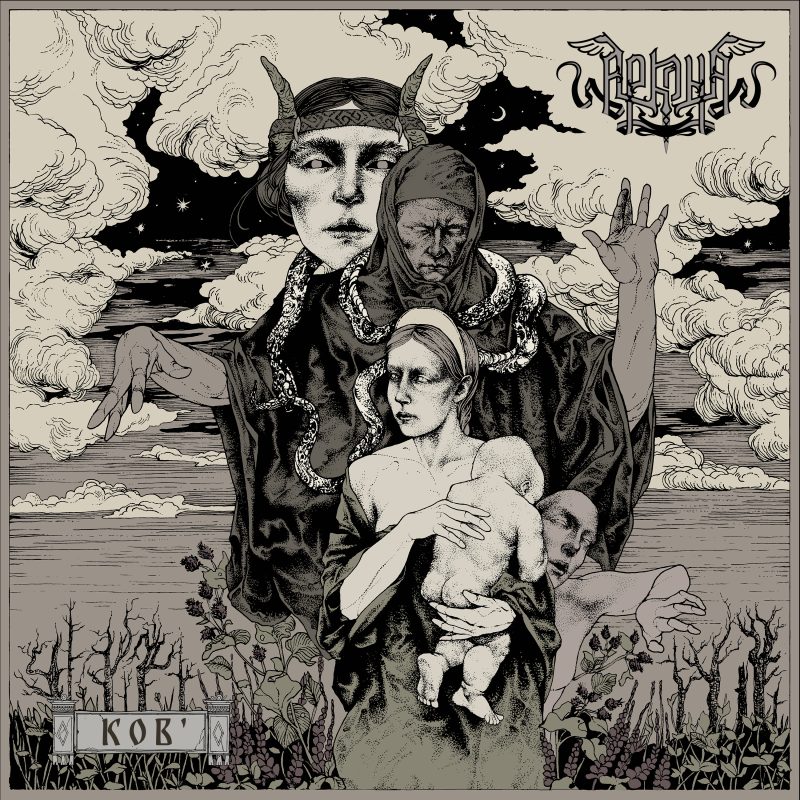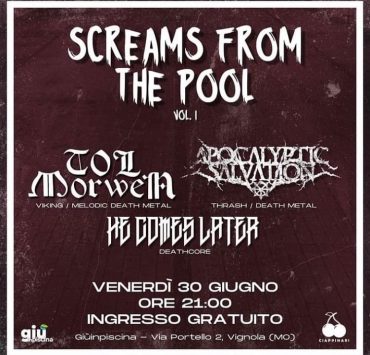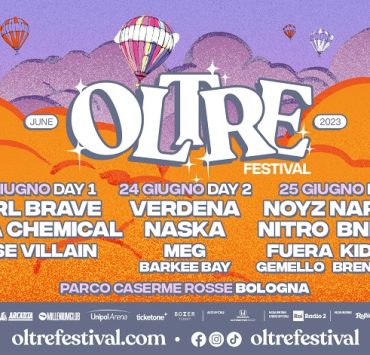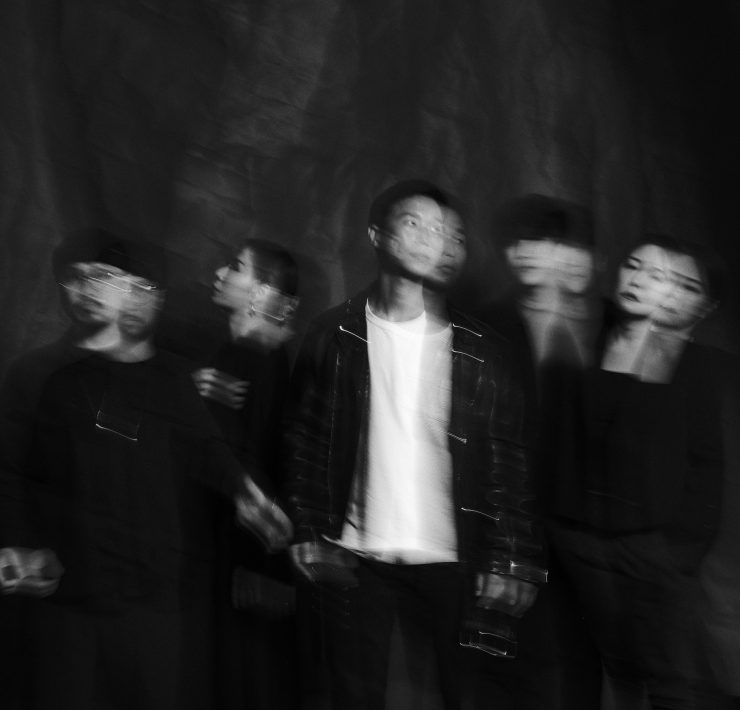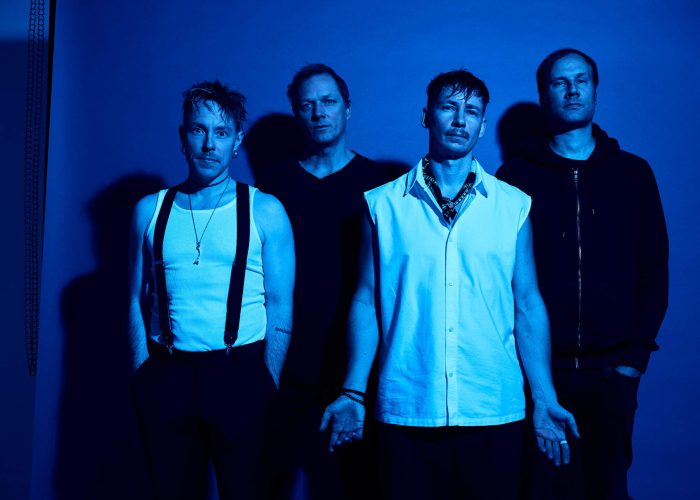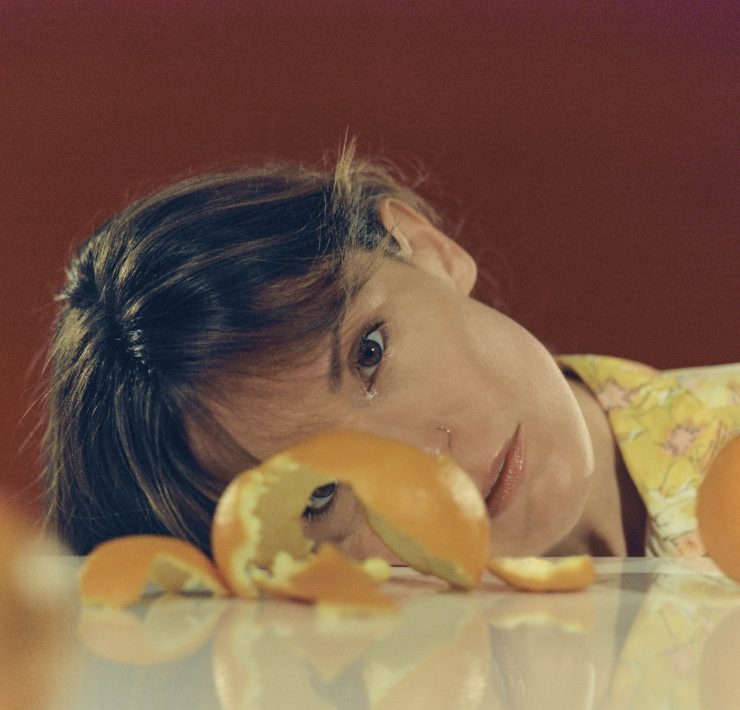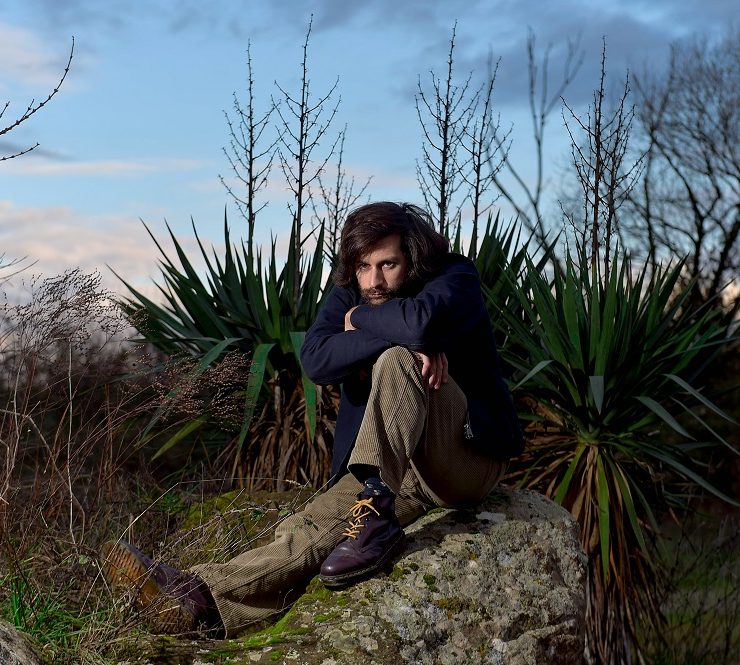ARKONA – Intervista alla cantante Maria “Masha Scream” Arkhipova
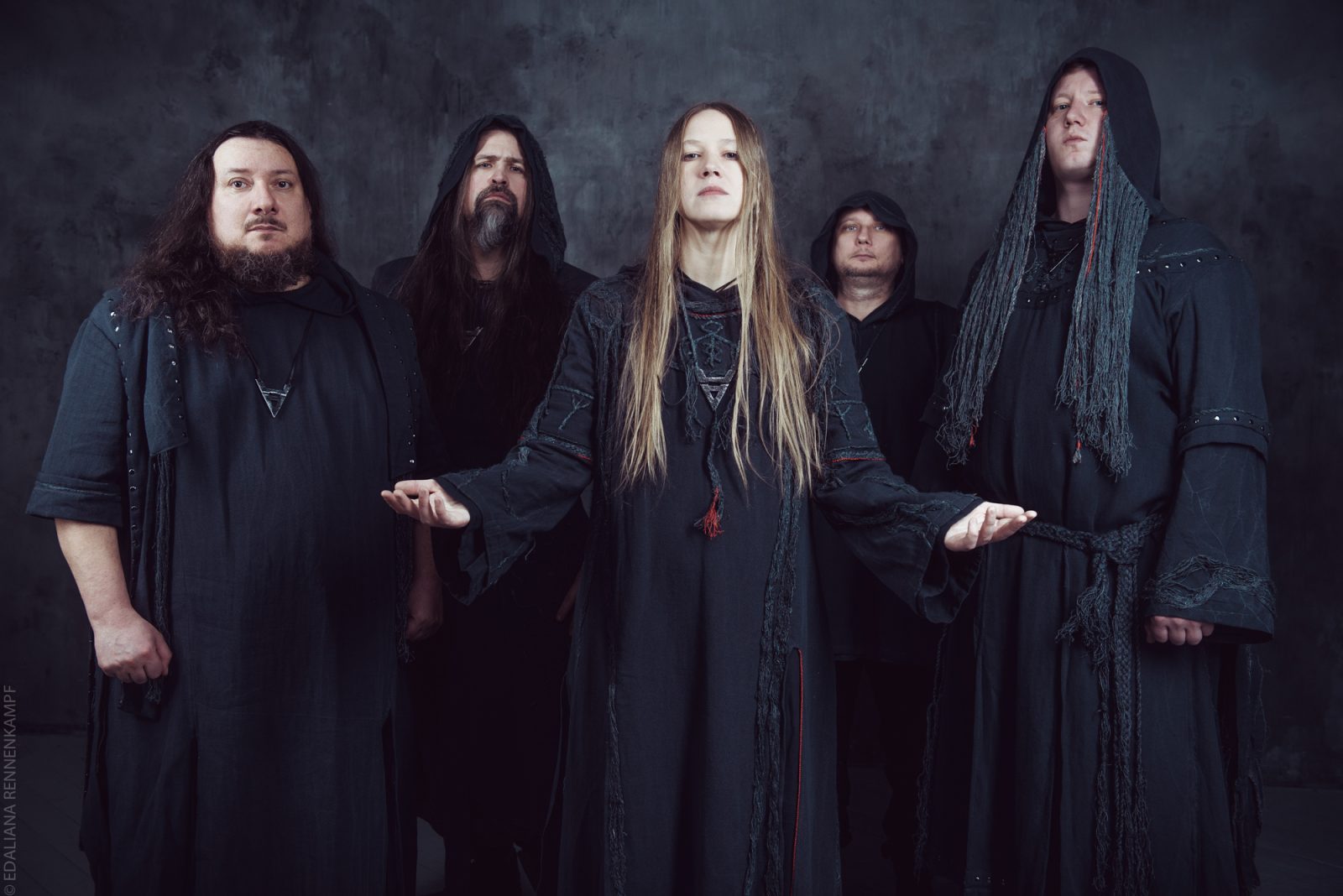
Non ha una visione molto positiva del destino dell’umanità Maria “Masha Scream” Arkhipova, la cantante degli Arkona. In questa intervista ci dice che l’umanità ha le ore contate. Da una parte ci viene da dire che forse sta esagerando, ma se ci guardiamo intorno tra guerre, pandemie, fame di potere, cambiamenti climatici…. forse ha ragione. Gli Arkona spno una band russa con circa 20 anni di attività alle spalle e il nuovo album “Kob’”, di cui leggerete la recensione su queste pagine molto presto, è un album oscuro, violento e malinconico, aggressivo ed agghiacciante, ma avvolgente e trascinante. Ma lascio la parola a Masha, di seguito l’intervista.
Ciao e benvenuta su Tuttorock. Presenta la band ai nostri lettori, come sono nati gli Arkona? Una lunga storia iniziata circa vent’anni fa.
Inizialmente la mia band si chiamava “Krovavaya Mary” (“Bloody Mary”) e suonavamo heavy metal in lingua russa. Ho scritto le mie canzoni, io e i musicisti vivevamo nello stesso appartamento ed eravamo in stretta interazione creativa e quotidiana. Tutto è andato avanti così fino a quando il nostro amico della nostra comunità metal ha trovato un libro da qualche parte nella spazzatura, “I tre della foresta” dello scrittore Yuri Nikitin, è stata la prima serie fantasy sovietica basata sull’epopea pagana slava. Poi il nostro batterista Alexander Korolev ha letto quel libro e si è subito dichiarato sacerdote pagano e ha iniziato a visitare varie comunità neopagane e ne ha persino creata una propria. Ma non ero affatto interessata a quel genere di cose, quindi ho reagito a un tale hobby di un musicista della mia band, per usare un eufemismo, estremamente scettico, finché non mi hanno portato alla celebrazione del solstizio d’estate, con l’arrangiamento ” Circle of Pagan Tradition” da qualche parte nella regione di Mosca. Dopo di che la mia visione del mondo è cambiata radicalmente e ho sentito di aver trovato la mia visione del mondo. Questo è successo anche alla mia musica. È così che è nata Arkona.
Siete considerati una band metal pagana. Perché hai preso questa direzione?
Presumo di aver già parzialmente risposto a questa domanda sopra. E sebbene ora la mia visione del mondo abbia acquisito forme completamente diverse da quando avevo 19 anni, ha ottenuto il suo contenuto e le sue basi allora, 21 anni fa.
Parlami del nuovo album “Kob’”, qual è stato il processo compositivo dei vari brani?
Qualsiasi processo compositivo avviene sotto l’influenza di fattori emotivi esterni, non scrivo musica solo per piacere, ho molti altri hobby. Se non succede niente nella mia vita, allora non ci sono nuove canzoni. Alcuni eventi degli ultimi anni mi hanno influenzato così tanto che si è riversato in un nuovo album, dove esprimo il mio disappunto nei confronti della società e dell’umanità nel suo insieme. Le 6 canzoni raccontano la graduale immersione cosciente dell’umanità nell’abisso, questa non è la biblica “peste, guerra e carestia”, ma il significato è abbastanza vicino. In generale, puoi guardarti intorno e valutare la situazione con mente sobria e tutto diventerà chiaro senza le mie canzoni.
Quali sono le differenze rispetto all’album precedente?
Prima di tutto, la musica è cambiata, anche se è più vicina all’album precedente che alle canzoni che l’avevano preceduto. “Khram” era un album più personale, prima di tutto descrivevo il mio tempio interiore come accumuli dei miei pensieri ed esperienze che si riversavano nella mia filosofia. Conteneva entrambi i lati “in bianco e nero”, come descritto nella canzone “Tseluya Zhizn'” sotto forma di una danza di due sorelle: Vita e Morte. Nel nuovo album rimane solo una delle sorelle, e il suo nome NON è vita.
Secondo me è più ricco di sfumature musicali, arrangiamenti e variazioni sonore. È solo una mia impressione?
Forse. Ma non c’era intenzione di farlo così. L’album è venuto come mi serviva, se mi sembrava che ci fosse bisogno di un arrangiamento primitivo e minimalista, allora ci sarebbe stato, ma in quel momento non mi sembrava appropriato.
Non credo che l’album sia un concept, ma parla di umanità se ho capito bene. Dimmi il significato del testi.
Concettualmente, l’album Kob’ è Katabasis, che descrive la graduale discesa dell’umanità nell’abisso, attraverso il totale auto-annientamento attraverso varie transizioni a più livelli che avvengono attraverso gli eventi del nostro tempo. Ogni problema dell’umanità è indicato nell’album in ordine di inevitabile occorrenza. L’immersione si svolge in 6 tappe (6 brani dell’album), ognuna di esse ci racconta passo dopo passo gli eventi di oggi, rivelando la loro essenza oscura per mezzo di accompagnamento musicale e lirico. Le 6 tappe sono inquadrate in 2 enunciati, che sono il punto iniziale e quello finale della discesa negli abissi.
Cosa ne pensi del destino dell’umanità? È una domanda che ci poniamo spesso, qual è il tuo pensiero?
Tutto ciò è espresso nell’ultima canzone dell’album. Periremo tutti tra le ceneri di una guerra nucleare. Siamo tutti bloccati nella fase regressiva dello sviluppo sociale; ognuno si preoccupa solo dei propri interessi personali, non pubblici, il che, ovviamente, genera polemiche. Le tecnologie, comprese le tecnologie di distruzione di massa, sono diventate molto più avanzate, ma il pensiero in generale è rimasto al livello dell’alto medioevo. Anche se, mi sembra, è persino regredito.
Torniamo a parlare di musica. Nelle varie canzoni ci sono orchestrazioni, elementi folk, sintetizzatori, tastiere, flauti, parti orchestrali, come ti vengono queste idee che poi porti nelle tue canzoni?
Inizialmente nasce il contenuto: le melodie e il concetto generale della canzone stessa. Gli arrangiamenti e l’uso degli strumenti sono una questione secondaria e non causano alcuna difficoltà. E, se puoi notare, non ci sono elementi molto folk nel nuovo album.
Parliamo di te, della tua voce e delle tue influenze musicali. Cosa sono e come è nata la tua passione per il canto?
Ho iniziato a cantare anche prima di iniziare a parlare e a comporre musica all’incirca alla stessa età. Questa è la mia espressione personale e il mio modo di vivere. Tutti i tipi di musica hanno avuto un’influenza su di me, durante l’infanzia c’erano canzoni per bambini, in età adulta – musica rock. Allo stesso tempo, mi considero un artista indipendente, non influenzata dall’esterno.
Quali sono le tue altre passioni al di fuori della musica?
Ho una famiglia numerosa e una casa di campagna. Tutti i miei hobby includono i soliti normali hobby femminili e non sono affatto simili alla vita degli eroi della scena rock.
Cinque lunghi anni di pausa dal disco precedente a quello nuovo. Perché tutto questo tempo?
Potrebbe non esserci alcun prossimo album. Forse diventerò emotivamente insensibile e meno ricettiva nei confronti del mondo che mi circonda e non avrò nulla da dire nelle mie canzoni. E non registrerò canzoni per andare in tournée o accontentare i fan con un altro “Yarilo”. Forse userò i miei pensieri in modo diverso e non sarà musica.
Qual è per te l’album più rappresentativo degli Arkona?
Ciascuno degli album rappresenta perfettamente gli Arkona, ma solo durante il periodo in cui è stato rilasciato. Se ti piaceva di più la nostra arte, diciamo, 15 anni fa, allora il mio stato d’animo e il modo di pensare erano più vicini a te allora che adesso.
La canzone che ti entusiasma di più da cantare?
Le nuove canzoni, ovviamente. Sono molto più vicine a quello che sono adesso. Allora tutto potrebbe cambiare. O forse no. Non so cosa succederà dopo.
È previsto un tour?
Sì, c’è un tour con i Batushka ad ottobre e con i Belphegor a novembre.
Grazie e chiudi l’intervista come vuoi, un messaggio al pubblico italiano per ascoltare il vostro nuovo album.
Grazie! Non voglio pubblicizzare il mio nuovo album qui in questo modo “ragazzi, assicuratevi di ascoltare le mie nuove canzoni e venite ai nostri concerti”, non mi piace tutta questa merda ipocrita e odio quelle band che costruiscono i loro piani di marketing vendere più dischi e mettersi in mostra ai concerti davanti a un vasto pubblico. Se sei interessato ai miei pensieri ed esperienze personali, se sei pronto a seguirli, invece di rimanere al livello di alcune canzoni divertenti del nostro periodo divertente, allora queste canzoni sono per te. Altrimenti, passa.
FABIO LOFFREDO
Band:
Maria “Masha Scream” Arkhipova: Voce e tastiere
Sergei “Lazar” Atrashkevich: Chitarra
Ruslan “Kniaz” Rosomaherov: Basso
Vladimir “Volk” Reshetnikov: Strumenti etnici
https://www.arkona-russia.com/
https://www.facebook.com/arkonarussia/
https://www.youtube.com/user/arkonaru
https://www.instagram.com/arkonarussia/
https://napalmrecords.com
** ENGLISH VERSION **
Hello and welcome to Tuttorock. Introduce the band to our readers, how was Arkona born? A long story that began about twenty years ago.
Initially, my band was called “Krovavaya Mary” (“Bloody Mary”) and we played heavy metal in the Russian language. I wrote my songs, the musicians and I lived in the same apartment and we were in close creative and everyday interaction. Everything went on like this until our friend from our metal community found a book somewhere in the garbage heap, “The Three from the Forest” by writer Yuri Nikitin, it was the first Soviet fantasy series based on the Slavic pagan epic. Then our drummer Alexander Korolev read that book and he immediately declared himself a pagan priest and began to visit various neo-pagan communities and even created his own one. But I wasn’t interested in that kind of things at all, so I reacted to such a hobby of a musician from my band, to put it mildly, extremely skeptically, until they took me to the summer solstice celebration, with the arranged “Circle of Pagan Tradition” somewhere in the Moscow region. After that my worldview changed radically and I felt that I had found my worldview. This happened to my music as well. That’s how Arkona was born.
You are considered a pagan metal band. Why did you take this direction?
I assume that I’ve already partially answered this question above. And although now my worldview has acquired completely different forms from the time when I was 19 years old, it obtained its content and basis back then, 21 years ago.
Tell me about the new album “Kob’”, what was the compositional process of the various songs?
Any compositional process occurs under the influence of external emotional factors, I don’t write music just for pleasure, I have plenty of other hobbies. If nothing is happening in my life, then there are no new songs. Some events of recent years have influenced me so much that it has poured out into a new album, where I express my disappointment in society and humanity as a whole. The 6 songs tell about the gradual conscious immersion of humanity into the abyss, this isn’t the biblical “plague, war and famine”, but the meaning is quite close. In general, you can look around and assess the situation with a sober mind and everything will become clear without my songs.
What are the differences comparing it to the previous album?
First of all, the music has changed, although it is closer to the previous album than to the songs that had come before it. “Khram” was a more personal album, first of all I described my inner temple as accumulations of my own thoughts and experiences which poured into my own philosophy. It contained both “black and white” sides, as described in the song “Tseluya Zhizn’” in the form of a dance of two sisters – Life and Death. On the new album only one of the sisters remains, and her name is NOT life.
In my opinion it is richer in musical nuances, arrangements and sound variations. Is it just my impression?
Perhaps. But there was no intention to make it like that. The album turned out the way I needed it, if it seemed to me that a primitive and minimalist arrangement was needed, then it would have beeb there, but at that time it didn’t seem appropriate to me.
I don’t think the album is a concept, but it speaks of humanity if I understand correctly. You tell me the meaning of the lyrics.
Conceptually, album Kob’ is Katabasis, which depicts the humanity’s gradual descent into the abyss, by total self-annihilation via various multi-level transitions happening through the events of our time. Every problem of humanity is indicated in the album in order of its inevitable occurrence. The immersion takes place in 6 stages (6 album tracks), each of them tells us about the events of today step by step, revealing their dark essence by means of musical and lyrical accompaniment. The 6 stages are framed in 2 utterances, which are the starting and the final point of the descent into the abyss.
What do you think about the fate of humanity? It is a question we often ask ourselves, what is your thought?
All of that is expressed in the last song of the album. We all will perish in the ashes of a nuclear war. We are all stuck at the regressive stage of social development; everyone is concerned only about their own personal, not public interests, which, of course, generates controversy. Technologies, including technologies of mass destruction, have become much more advanced, but thinking in general has remained at the level of the early Middle Ages. Although, it seems to me, it has even regressed.
Let’s go back to talking about music. In the various songs there are orchestrations, folk elements, synths, keyboards, flutes, orchestral parts, how do you get these ideas that you then bring into your songs?
Initially, the content is born – the melodies and the general concept of the song itself. Arrangements and the use of instruments are a secondary issue and do not cause any difficulties. And, if you could notice, there are no folk elements on the new album.
Let’s talk about you, your voice and your musical influences. What are they and how did your passion for singing come about?
I started singing even earlier than I started talking, and composing music at about the same age. This is my self-expression and my way of life. All sorts of various music had an influence on me, in childhood there were children’s songs, in adulthood – rock music. At the same time, I consider myself an independent artist, not influenced from the outside.
What are your other passions? Outside of music?
I have a big family and a country house. All my hobbies include usual normal female hobbies and they aren’t similar to the life of the rock scene heroes at all.
Five long years of break from the previous album to the new one. Why all this time?
There might be no next album at all. Perhaps I’ll become emotionally callous and less receptive to the world around me and I will have nothing to say in my songs. And I will not record songs in order to go on tour or please the fans with another “Yarilo”. Maybe I’ll use my thoughts in a different way and it won’t be music.
What is Arkona’s most representative album for you?
Each of the albums perfectly represents Arkona, but only during the period when it was released. If you liked our art more, let’s say, 15 years ago, then my state of mind and the way of thinking were closer to you back then than now.
The song that excites you the most to sing?
The new songs, obviously. They’re much closer to what I’m now. Then everything might change. Or might not. I don’t know what will happen next.
Is there a tour scheduled?
Yes, there is a tour with Batushka in October and with Belphegor in November.
Thank you and close the interview as you wish, a message to the Italian public to listen to your new album.
Thank you! I don’t want to advertise my new album here like this “guys, be sure to listen to my new songs and come to our concerts”, I don’t like all this hypocritical shit and I hate those bands who build their marketing plans to sell more records and show off at concerts in front of a large audience. If you are interested in my personal thoughts and experiences, if you are ready to follow them, instead of staying at the level of a few funny songs from our fun period – then these songs are for you. Otherwise, pass by.
FABIO LOFFREDO
Photo by Edaliana Rennenkamp
Appassionato di musica sin da piccolo, ho cercato di esplorare vari generi musicali, ma è il metal, l'hard rock ed il rock progressivo, i generi musicali che più mi appassionano da molti anni. Chitarrista mancato, l'ho appesa al chiodo molto tempo fa. Ho mosso i primi passi nello scrivere di musica ad inizio anni 90, scrivendo per riviste come Flash (3 anni) e Metal Shock (ben 15 anni), qualche apparizione su MusikBox e poi il web, siti come Extramusic, Paperlate, Sdangher, Brutal Crush e Artists & Bands. I capelli mi si sono imbiancati, ma la passione per la musica è rimasta per me inalterata nel tempo, anzi molti mi dicono che non ho più speranze!!!!



